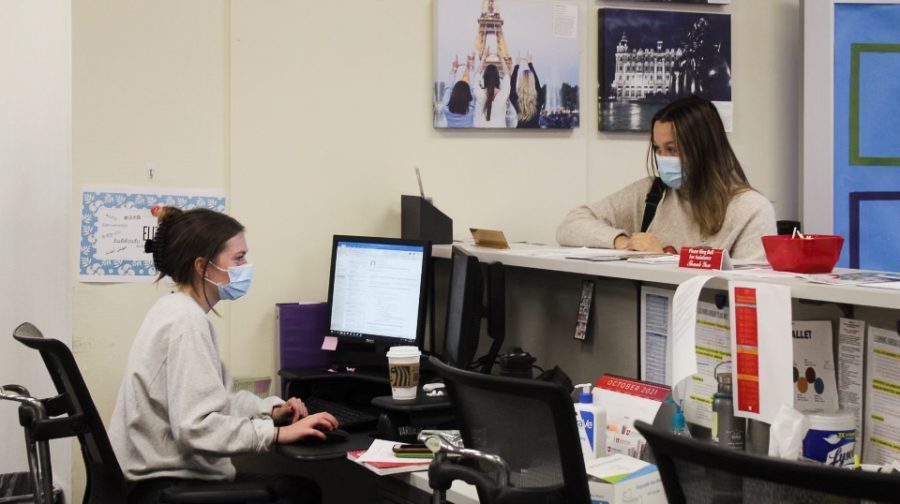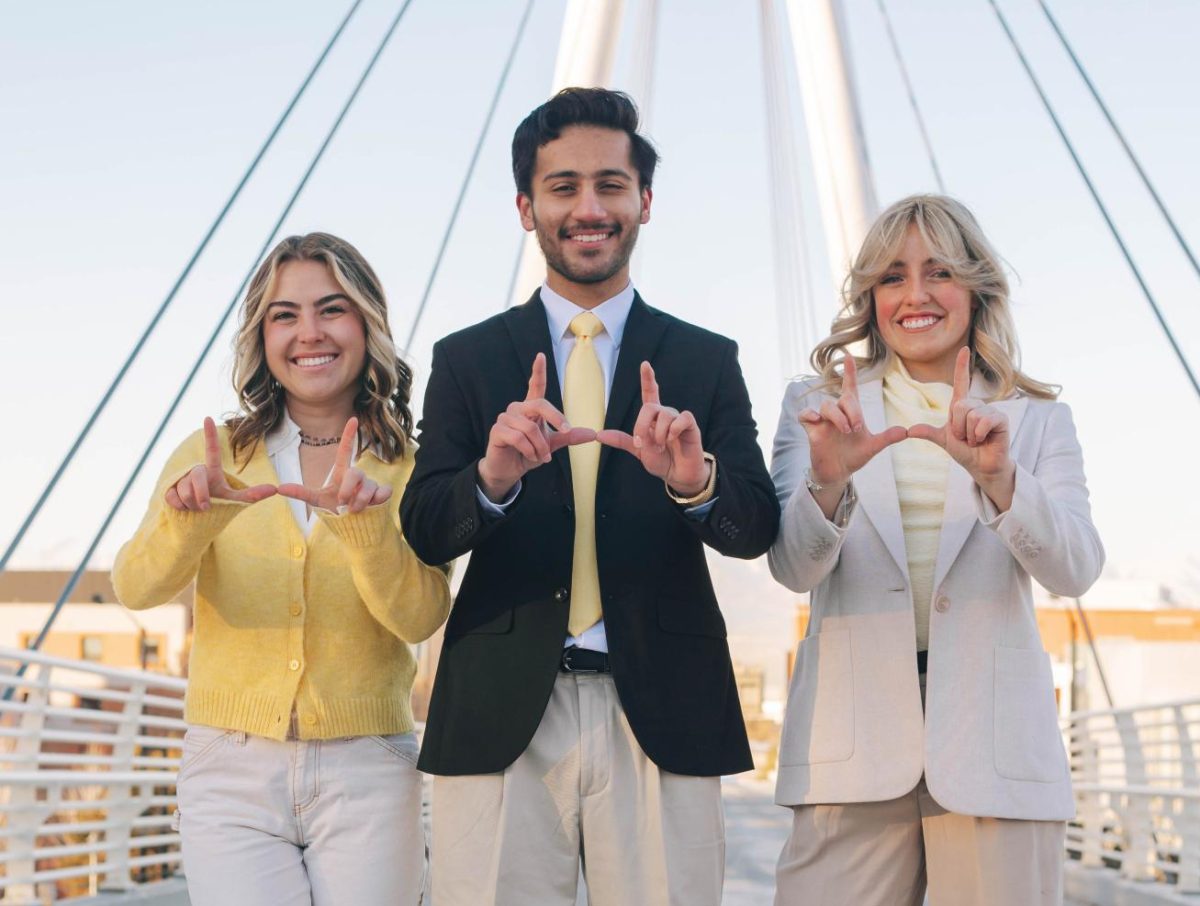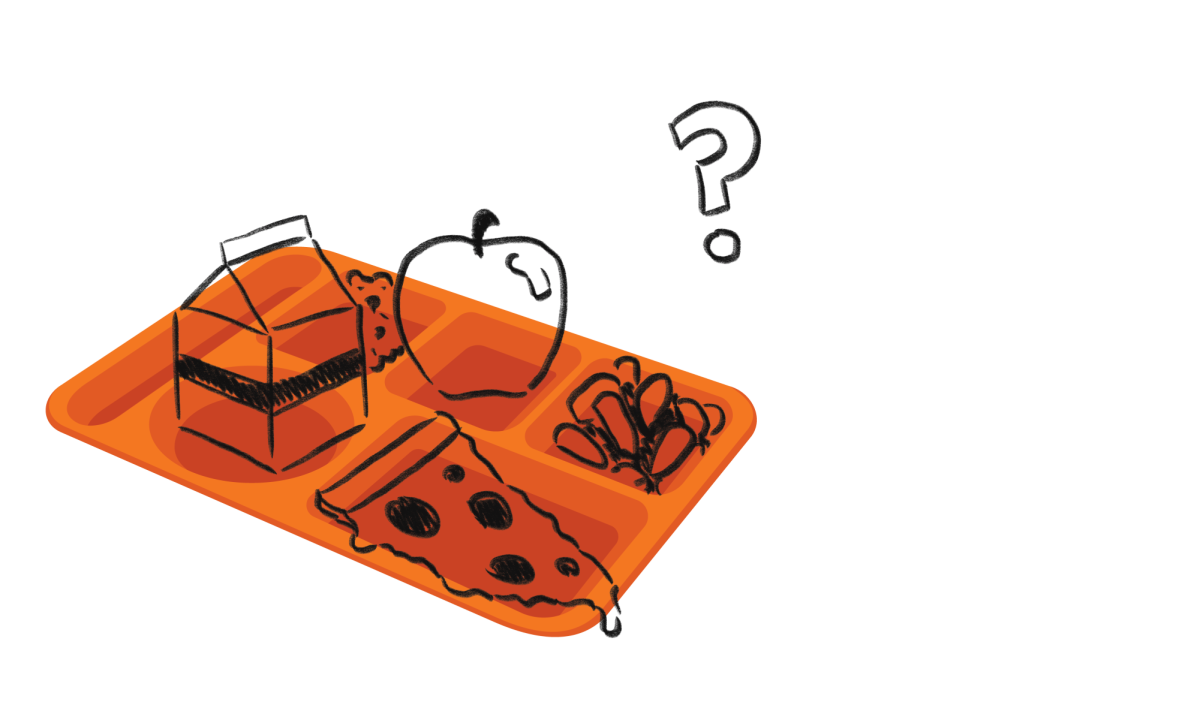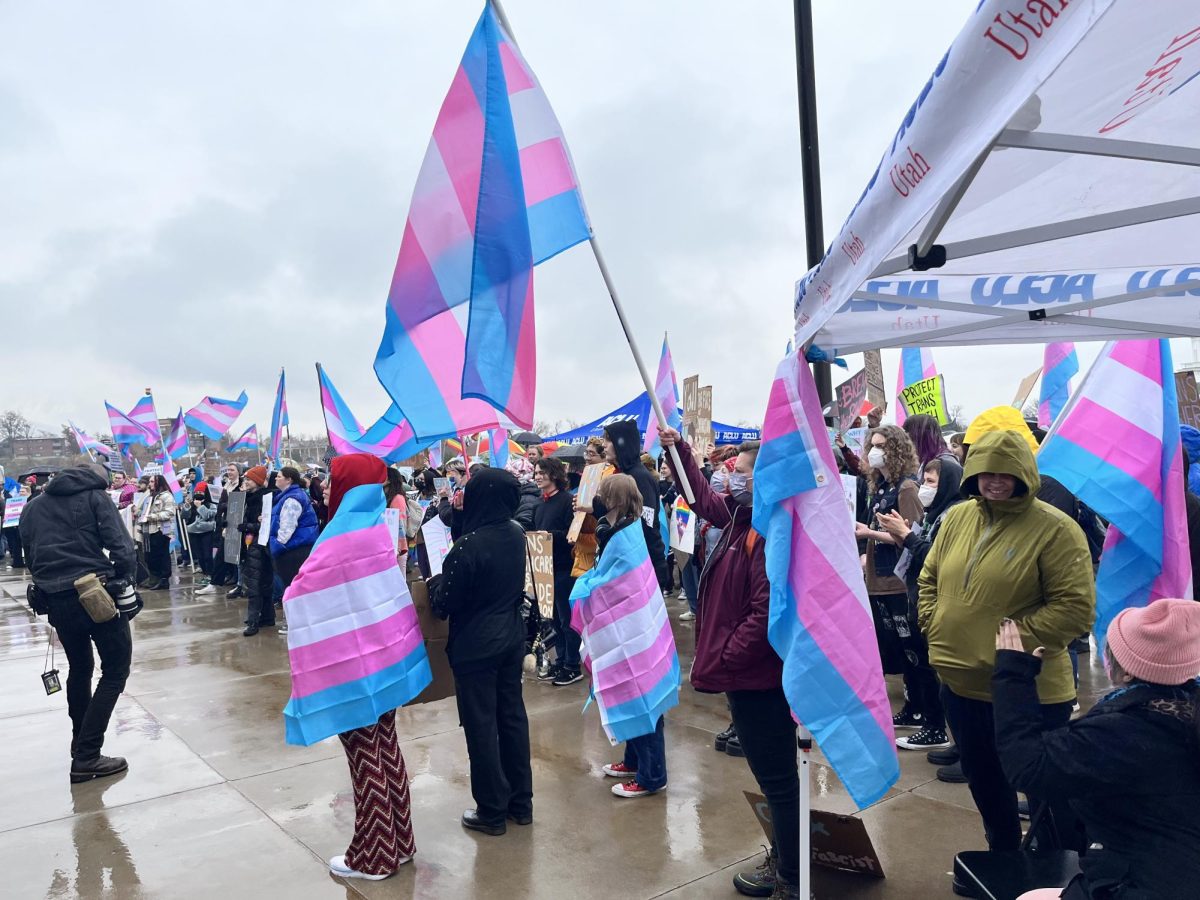Students Find Unlikely Classrooms in Cobblestone Streets and Coffee Shops
Eliza Emerson providing fellow student Helena Goei with info on the many programs through the Learning Abroad Center located on the University of Utah Campus in Salt Lake City, Utah on Oct. 21, 2021. (Photo by Langley Hayman | The Daily Utah Chronicle)
August 26, 2022
From exploring ancient ruins to ordering espresso in Verona, Italy, University of Utah student Caroline Flood said her language learning experience was enriched during her summer learning abroad program.
Flood is majoring in international studies with a minor in Italian. She took part in an intensive language learning abroad experience in Italy this summer to further her skills.
Students on the trip ranged from those having no Italian language experience to those who had taken advanced classes.
Each week, the students spent four days in the classroom with three days for excursions. For example, during the week, they read classic Italian literature before going on a weekend trip to a vineyard to learn about the process of making olive oil.
One thing Flood learned from this trip was how the language differs on paper versus the outside world.
“The word ‘prego,’ we were always just told that it kind of means you’re welcome, but when we went there, cashiers would use it to tell you, ‘you can go ahead and put your card in, or you can grab something or go ahead and do this,’” she said. “So being able to learn those dualities that exist in Italian was really helpful.”
Being a part of a tight-knit group helped Flood learn more about the language and herself. When the students explored Verona, they had to use their varying skills to navigate the city.
“This experience really, really changed my life,” she said. “I met so many new people that I don’t think I would have met without going on this program.”
Going Global
Rick Batchelor, the interim associate director of learning abroad in the Office for Global Engagement at the U, has been working in education for over 10 years. He grew up in Boston and traveled to a variety of places such as Italy, Spain and the Federated States of Micronesia throughout his life.
In these places, he stayed with a host family, taught English and was a program director for a nonprofit organization.
Batchelor said it’s important for students to plan ahead and consider what the academic experience in a different country would provide for them before studying abroad.
Some of the classes taken while abroad can also be taken on the U’s campus, but being in the heart of a new city and immersed in its culture provides a different type of experiential learning, he explained.
Through their Diversity and Identity Abroad Guides, the office provides background information, reflection questions and tips for students considering the programs.
“So oftentimes, when folks may think about studying abroad, it’s like that time when you’re there, right,” he said. “But the way that we look at it is the comprehensive support and advising and guidance before, as well the support that you would need while abroad.”
He mentioned the Global LEAP Program, where U freshmen spend their fall semester in Salt Lake, and the following semester at the Utah Asia Campus in South Korea.
“They’re paying resident tuition rates while they’re there, regardless of the residency status for undergraduate students,” he said. “The housing at the Utah Asia Campus is very affordable.”
The office also covers the cost of applying for and receiving a passport.
Batchelor explained the office awards over $250,000 through student scholarships for those who participate in learning abroad programs, which creates opportunities for students who are typically underrepresented in these experiences.
“Creating access is creating an environment, creating a culture here at the U, here at Learning Abroad, where it is something that all students are aware of,” he said. “All students can elect to choose if they wish to participate in this program.”
Some programs at Learning Abroad have existed for over 20 years, while new programs are added over time by faculty members submitting proposals or the office developing new exchange partnerships.
There’s No Place Like Home
Athens Boyle, a senior environmental sustainability major who uses he and they pronouns, is the great-grandchild of Italian immigrants. He wanted to be able to speak with his older Italian relatives.
Verona was actually Boyle’s ancestral hometown, where their family grew up. They felt a strong connection to their Italian roots and a sense of belonging in the country.
“I just wanted to go to Italy really to just kind of return to the motherland in a way,” he said.
He said the trip offered opportunities for students of all academic interests to apply themselves.
Besides learning that he was “cracked at public transit,” Boyle also learned that being far away from home does not mean home is far away.












